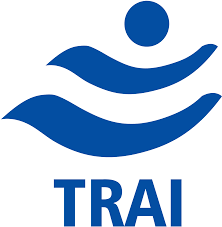FoIR and TRAI Promote Digital Connectivity Ratings for Smarter Infrastructure
Over 80 senior officers participated, reflecting the cross-sectoral recognition that digital connectivity infrastructure is now as essential as water, electricity, and transport facilities.

- Country:
- India
The Forum of Indian Regulators (FoIR), in collaboration with the Telecom Regulatory Authority of India (TRAI), organised an online interactive session on the newly introduced Framework for Rating of Properties on Digital Connectivity. The event underscored the growing importance of integrating digital infrastructure into real estate and urban planning to support India’s transition into a digitally empowered economy.
A Multi-Sectoral Engagement
The session brought together a wide spectrum of regulatory and sectoral leaders, including members of FoIR, senior officials from the Insolvency & Bankruptcy Board of India (IBBI), Central Electricity Regulatory Commission (CERC), Petroleum & Natural Gas Regulatory Board (PNGRB), Competition Commission of India (CCI), State Electricity Regulatory Commissions (SERCs), and the Airports Economic Regulatory Authority of India (AERA).
Over 80 senior officers participated, reflecting the cross-sectoral recognition that digital connectivity infrastructure is now as essential as water, electricity, and transport facilities.
Digital Infrastructure as a Core Requirement
The session began with an inaugural address by Shri Ravi Mital, Honorary Chairperson of FoIR and Chairman of IBBI. He emphasized that robust digital connectivity has become a foundational requirement across finance, education, healthcare, housing, and transportation. Commending TRAI’s initiative, he noted that embedding connectivity readiness into planning and governance frameworks would strengthen both economic and social development.
Shri Anil Kumar Lahoti, Chairperson of TRAI, highlighted a key challenge: though 70–80% of mobile data traffic in India is consumed indoors, coverage gaps remain in many buildings. With the advent of 5G and next-generation technologies, reliable indoor connectivity must be treated as a basic utility requirement. He outlined that infrastructure components such as fibre entry, ducting, rooftop access, cable trays, Wi-Fi readiness, and redundancy mechanisms must be planned alongside conventional facilities.
Voluntary Star-Rating System for Properties
TRAI informed participants about the Regulations, 2024, which introduced a voluntary star-rating system for properties based on their digital connectivity infrastructure. To support its implementation, TRAI released the Manual for Assessment of Digital Connectivity on 13 August 2025, offering comprehensive guidelines for evaluation.
To operationalize the framework, TRAI has already registered eight Digital Connectivity Rating Agencies (DCRAs), with more applications under review. These agencies will assess properties on parameters such as:
-
Fibre readiness
-
Indoor mobile signal strength
-
Wired and wireless network availability
-
Wi-Fi enablement
-
Resilience and redundancy of digital infrastructure
Technical Insights and Capacity Building
During the technical session, Shri Tejpal Singh, Advisor (QoS-I), TRAI, delivered a presentation detailing the methodology and rating parameters. The session highlighted that mainstreaming such assessments would enhance user experience, improve property value, and align with the national vision of Digital India and the Smart Cities Mission.
The star-rating framework is expected to encourage real estate developers to integrate digital infrastructure during the design and construction phases, ensuring that homes, offices, and public facilities are equipped for the data-driven economy.
Driving Adoption of Digital Connectivity Ratings
This interactive session is part of TRAI’s broader outreach campaign to build stakeholder awareness and promote adoption of its digital connectivity rating framework. By creating a common language of evaluation, the initiative is set to drive higher standards in urban development, enhance quality of life for residents, and support India’s ambition of becoming a globally competitive digital economy.










